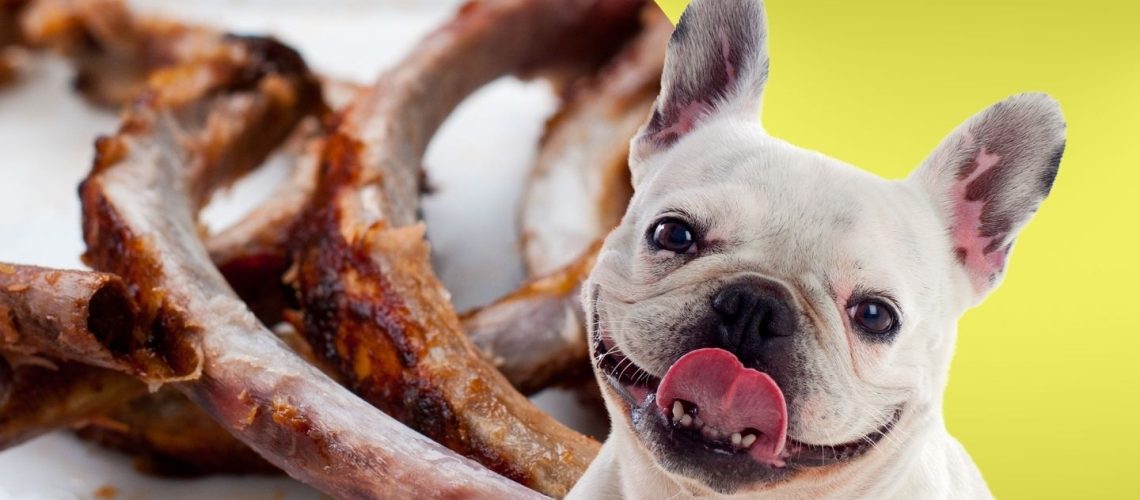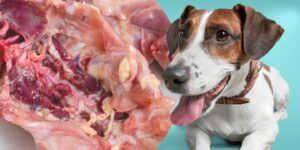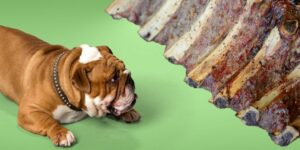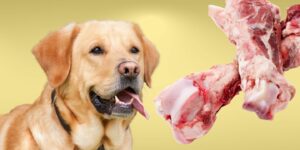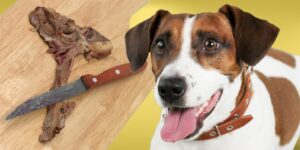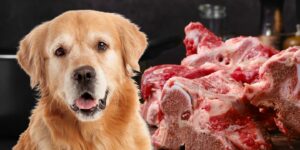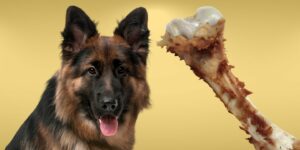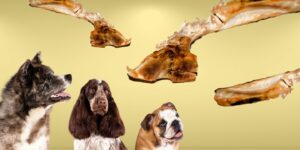The short answer to whether dogs can eat pork rib bones is that it is not recommended. While some dogs may be able to safely consume rib bones, the risk of choking or gastrointestinal blockages is too high to make them a safe option for most dogs. Understanding what your dog can eat and the risks of feeding inappropriate foods is crucial to your pet's health and well-being.
Risks of Feeding Rib Bones to Dogs
Choking Hazard
Rib bones can splinter when chewed, posing a choking hazard. If your dog accidentally swallows a large piece of rib bone, they may have difficulty breathing, gagging, or coughing.
Gastrointestinal Blockages
Sharp edges from splintered rib bones can cause damage to your dog's digestive tract. If a piece of rib bone becomes stuck in the digestive system, it can cause an obstruction, leading to symptoms such as lethargy, loss of appetite, and abdominal pain or swelling. Treatment for gastrointestinal blockages often involves surgery and can be expensive.
Potential for Bacterial Contamination
Feeding raw or undercooked rib bones can pose risks of bacterial contamination like salmonella and E. coli. Proper handling and storage of raw bones are essential to minimize these risks.
The Debate: Raw vs. Cooked Bones
Why Some People Believe Raw Bones Are Safe
Some argue that raw bones are part of a dog's natural diet and are safer because they are softer and less likely to splinter.
Dangers of Cooked Bones
On the other hand, cooked bones are brittle due to the cooking process and pose a higher risk of splintering and cracking.
Safe Alternatives to Rib Bones
Manufactured Dog Chews
Safe alternatives to rib bones include rawhide chews, dental chews, and natural chew options like bully sticks and antlers.
Chew Toys
Rubber and nylon toys, as well as puzzle toys and treat-dispensing toys, are also great options for dogs to chew on.
Supervision and Providing Appropriate Chew Options
Always supervise your dog while they chew and provide appropriate chew options to minimize risks.
Signs of Bone-Related Issues in Dogs
Recognizing Symptoms of Choking or Blockage
Monitor your dog for symptoms such as gagging, coughing, vomiting, lethargy, loss of appetite, and abdominal pain or swelling.
What to Do If You Suspect Your Dog Has Ingested Rib Bones
Contact your veterinarian and monitor your dog's condition closely.
Tips for Safe Bone Consumption in Dogs
- Consult with your veterinarian
- Choose appropriate bone size and type
- Supervise your dog while they chew
- Know when to take the bone away
Conclusion
In conclusion, prioritize your dog's health and safety by choosing safe, appropriate alternatives for them to chew on instead of rib bones. Consult with your veterinarian about suitable chew options to ensure your dog's safety and well-being.

